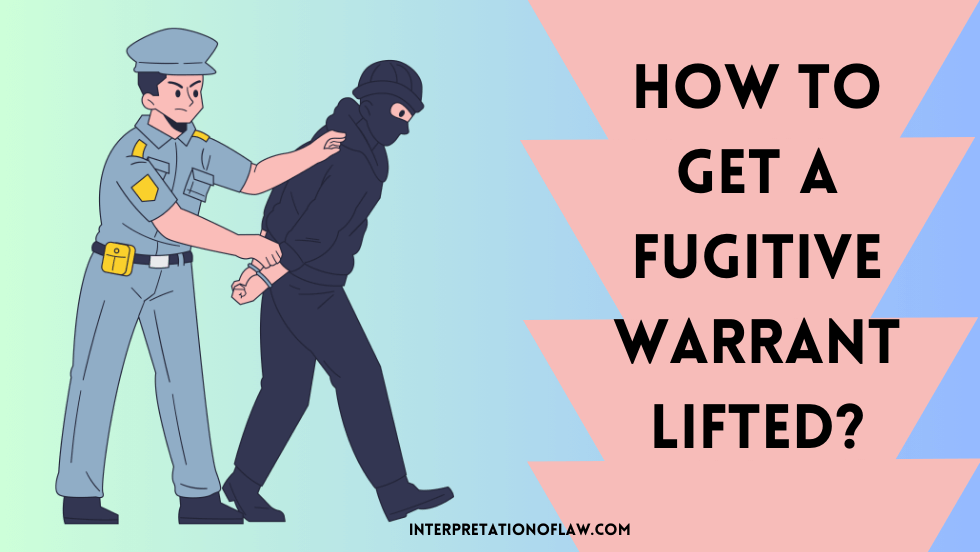A Fugitive Warrant is a legal document that authorizes the arrest and detention of an individual who has fled from one jurisdiction to another. Its purpose is to ensure that individuals who have been charged with crimes or are required to appear in court does not evade the legal process by crossing state or country borders.
Issuers and Conditions
Fugitive Warrants can be issued by judges, magistrates, or other authorized law enforcement officials. Generally, such warrants are issued under the following circumstances:
- A person has failed to appear in court when legally required.
- A person has been accused of a crime in one jurisdiction and has fled to another jurisdiction.
How are fugitives found?
Fugitives can be found through various methods, including:
1. Law Enforcement Agencies: Local, state, and federal law enforcement agencies work together to locate and apprehend fugitives. They use databases, surveillance techniques, and other investigative methods to track down individuals with active Fugitive Warrants.
2. Tips from the Public: Sometimes, members of the public may have information about the whereabouts of a fugitive. They can provide tips to law enforcement agencies, which can lead to the individual’s arrest.
3. Social Media and Technology: In today’s digital era , social media and technology play a significant role in locating fugitives.
Law enforcement agencies use online platforms and tools to track down individuals on the run.
How are fugitive warrants issued?
Fugitive Warrants are typically issued after a court hearing and a determination that the individual has violated the terms of their release or failed to appear in court. The warrant must include the name of the individual, the crime they are accused of, and any other relevant information.
In some cases, law enforcement may also request an arrest warrant if there is probable reason to believe that a person has committed a crime and is not in custody.
Extradition
Once a fugitive has been located and arrested, the extradition process begins. Extradition is the legal process of transporting an individual from one jurisdiction to another to face criminal charges or complete their sentence. The extradition process can be lengthy and not easy, as it involves multiple legal systems and authorities.
Importance of Fugitive Warrants
Fugitive Warrants play a crucial role in maintaining the integrity of the legal system and ensuring that individuals who have been charged with crimes do not evade justice. They also serve as a deterrent for potential fugitives, knowing they will be pursued and brought to judge if they flee from one jurisdiction to another.
Additionally, Fugitive Warrants help protect the safety of communities by ensuring that those who have committed crimes do not continue to roam freely and potentially harm others.
How To Get a Fugitive Warrant Lifted?
A fugitive warrant is lifted when you are present in the trial alone or with legal representation. This is typically necessary to clear or dismiss a fugitive warrant. In the case of a misdemeanor citation, clearing or removing
your physical court appearance is required. It is also possible for the warranty to be invalidated if it was served in a manner different from what was specified in the warrant.
Appearing in Court
It is imperative to present oneself before the magistrate who granted the arrest in the event of being apprehended by a law enforcement officer. However, there is an alternative option to request a trial in the jurisdiction of detention.
Please appear to ensure the judge who was supposed to preside over the case is able to proceed.
Having legal representation during a court hearing is highly recommended, as it conveys the gravity of the situation to the judge. It allows the attorney to advocate for the release of their client from further legal consequences by presenting a compelling case. Additionally, appearing in court with legal representation can help negotiate the terms of the arrest warrant.
Negotiating a Surrender
Instead of being arrested and detained by law enforcement officers, an individual aware of a fugitive warrant may choose to surrender themselves. This process is known as “negotiating a surrender.” It involves contacting the issuing jurisdiction’s court or law enforcement agency and arranging for a voluntary surrender to be processed.
In some cases, an individual may also choose to negotiate the terms of their surrender, such as setting a specific date and time for their arrest. This can provide the individual with more control over their situation and may also result in a more lenient handling of the warrant by law enforcement officials.
Seeking Legal Advice
If you have a fugitive warrant issued against you, it is essential to seek legal advice as soon as possible. A criminal defense attorney can guide the best course of action and may be able to negotiate on your behalf with the issuing
jurisdiction. In some cases, an attorney may also be able to challenge the validity of the warrant or seek to have it withdrawn. It is important to have a legal professional on your side who can protect your rights and advocate for your best interests.
Death
In the unfortunate event of an individual’s death, while a fugitive warrant is active, the warrant is considered null and void. However, this does not absolve the deceased
individual from any legal consequences or obligations that may have been associated with the warrant. In such cases, the issuing jurisdiction may still proceed with any relevant legal proceedings against the deceased person’s estate. It is also possible for the warrant to be withdrawn or dismissed after the individual’s death, depending on the circumstances. It is essential to seek legal advice if you are dealing with a fugitive warrant in relation to a deceased individual.
Possible Legal Consequences
If a person does not cooperate with a Fugitive Warrant, there could be several legal consequences,
including:
- Additional criminal charges, such as obstruction of justice.
- Increased difficulty in negotiating plea bargains or other resolutions of the underlying charges.
- Enhanced penalties for the original charges, given the person’s conduct in evading the legal process.
Handling the Situation
It is essential to be proactive and address a Fugitive Warrant as soon as possible. If you are unsure of how to proceed, consult with a criminal defense attorney or an expert in fugitive warrants who can guide you through the process and recommend appropriate steps.
FAQs
Will my probation know of a fugitive warrant?
If there is a fugitive warrant issued against you, it is likely that your probation officer will be informed. It is essential to discuss the situation with your probation officer and follow any instructions or recommendations they may have.
Can a US Marshal come in a house looking for a fugitive without a warrant?
In general, US Marshals only have the authority to enter a person’s home with a warrant or permission from the homeowner. However, there may be certain circumstances where they are allowed to enter without a warrant, such as if they are in pursuit of a fugitive who has entered the home or if there is an imminent threat to public safety. It is best to seek legal advice if you are facing a situation involving US Marshals and your home.
Who was the longest fugitive?
John Patrick Hannan is an Irish prison fugitive who holds the record for the longest escape from custody. In December 1955, Hannan escaped Verne Prison, located on the Isle of Portland, Along with his fellow inmate, Gwynant Thomas. Assuming he is still alive, Hannan has been on the run for nearly seventy years.
According to sources, in 2001 Hannan surpassed double killer Leonard Fristoe’s record of 45 years and 11 months as a fugitive. In 1998, Dorset Police directly appealed to Hannan to surrender, stating in a service newsletter: “If you are reading this, Mr. Hannan, we kindly request you to contact us. We would greatly appreciate hearing from you.”
Where do most fugitives hide?
Fugitives can hide in a variety of places, depending on their resources and the severity of their crime. Some may flee to another state or country, while others hide out in remote areas or with friends or family members.
Fugitives may blend into crowded populations in urban areas and live under false identities. In rural areas, they may seek shelter in abandoned buildings or live off the grid in remote areas.
Overall, it isn’t easy to determine a specific location where most fugitives hide, as each case is unique and depends on the individual’s circumstances. However, law enforcement officials often search for offenders in places they have connections to or where they may try to establish new identities.
Final Words:
Seeking Help Dealing with a fugitive warrant can be a daunting and overwhelming experience. It is crucial to seek legal advice and assistance as soon as possible to ensure the best possible outcome for your situation. Remember, evading or ignoring a fugitive warrant will only have more severe consequences. So, take proactive steps to address the problem and work towards resolving it with the help of legal professionals. Stay informed and, know your rights, and always prioritize your safety and well-being.
Related Post:
Can You Bond Out on a Capias Warrant?
Resources
Fugitive Warrants, please visit the following resources:
· The United States Department of Justice
· National Center for State Courts

Carter Wilson is a licensed lawyer with over 10 years of experience in various legal fields. He is passionate about making law accessible to the general public and helping individuals navigate through complex legal matters.

